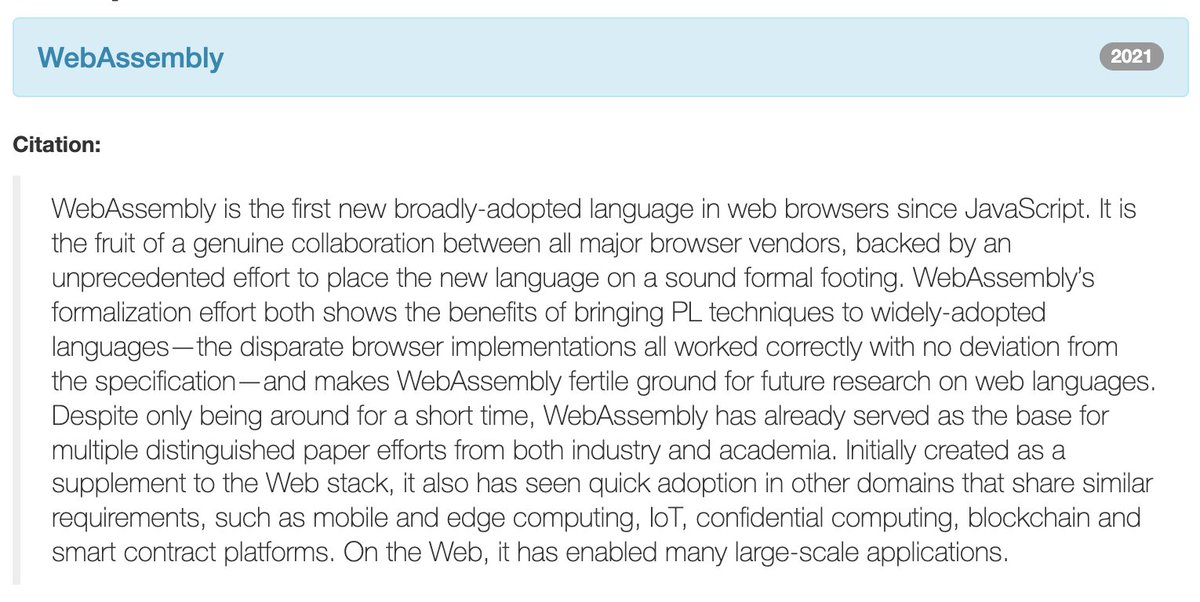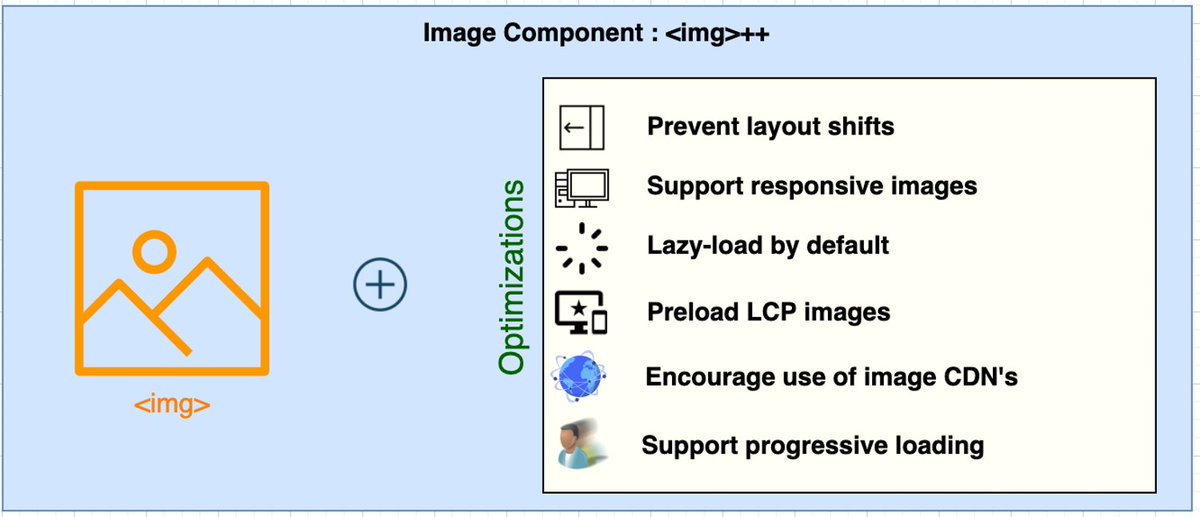
🧵 Here's my top 5 internet technologies of the year and a brief note about why I chose each one (see the article for full rationale & context)... thenewstack.io/top-5-internet…
1. WebAssembly; #WASM was the winner of @TheOfficialACM's 2021 SIGPLAN Programming Languages Software Award (see attached citation). What’s most intriguing about WASM is the future possibilities it opens up — some have suggested it may even eliminate the file system. 

2. Figma; @figmadesign is a collaborative interface design tool & it demonstrates that modern web browsers are capable of running incredibly rich, interactive content. Reminds me of 2004-2005, when startups like Writely and JotSpot came out with innovative “web office” products. 

3. Next.js 12; @nextjs developers love its ease-of-use and all the fancy features (like “edge functions”), however not everyone is enamored with the output of Next.js-made apps. But that’s perhaps more of an indictment of React itself, than Next.js. Ref: 
https://twitter.com/slightlylate/status/1436732399040139271

4. Lit Web Components; On the other end of the spectrum is the trend of web components, which are HTML-native components that eschew JavaScript tricks. A project named Lit (@buildWithLit) is at the forefront of innovation in web component development. 

5. Nvidia Omniverse; While @nvidiaomniverse is not an internet platform per se, it's a pointer to our online future and deserves recognition for being a working 3D platform. It’s something for aspiring #metaverse devs to play with now, while they await Meta’s new platform. 

There are a bunch of internet technologies that didn’t quite make the cut in this list, including PWAs, Decentralized Identifiers (DIDs), Basecamp’s Hotwire, CSS Container Queries, VS Code in the browser, and more. If you have other suggestions, I’d love to hear them!
• • •
Missing some Tweet in this thread? You can try to
force a refresh



